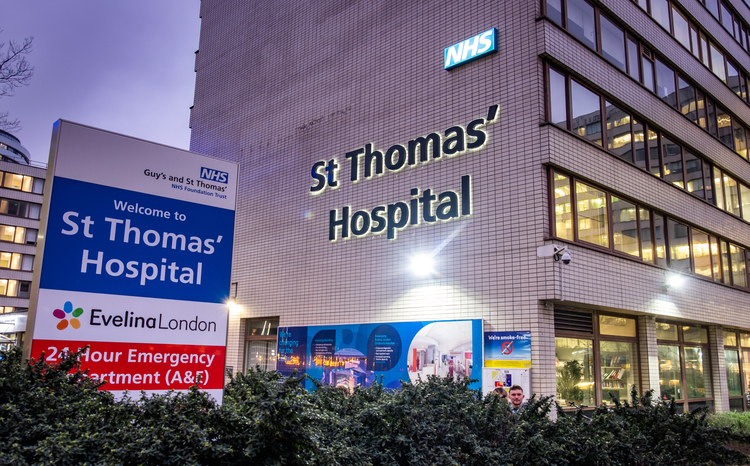“It’s not about politics – it’s about patients”
- 1 March 2007

“Government this, government that – nothing but political targets”. That’s BMA chairman, James Johnson’s very stark view of the current state of IT in healthcare.
Work has been slow and suppliers are constantly announcing delays, which Mr Johnson says is angering doctors and is leaving the national press to constantly question the National Programme for IT’s (NPfIT) worth.
Recently Mr Johnson was left in charge of promoting the BMA’s viewpoint that patients should have to opt-in to the NHS database, following much publicised headlines in the national press that patients had no choice but to have their data uploaded – without consent.
A ministerial taskforce was set up, in the wake of the reports, and Mr Johnson believes that Connecting for Health has begun to ‘soften’, with the two sides reaching a ‘classic British compromise’ but not to the extent that he would prefer. “The bottom line is that the care records system is an opt-out system and we want an opt-in system.”
Ideally, he would like to see a system where patients can have a choice on whether or not they have data uploaded, especially with concerns over historical patient information that patients would rather forget.
“We still believe that patients should have choice. I think it’s possible that historical data will never go on it. I suspect that the record will begin from a particular point of time, but patients need to know if historical data will go up or not – there can be no assuming.
“I think the easiest way around it would be for the patient to opt-in, give consent, every time new information is put in. We know from ordinary consent issues the data protection issues sharing data can bring up and believe patients should give explicit and not implied consent. Unfortunately, the Department of Health says this is not practical.”
James Johnson is also chair of the working party on NHS IT at the BMA and it’s not just the national programme that he feels suffers from government interference. Choose and Book has also hit the headlines recently, amidst claims that the system is ‘overwhelmingly unpopular’.
“The problem with Choose and Book is that it is open to politically motivated interference. If it was politically independent it would probably work great. At the moment though, we have all sorts of nonsense about choice facets. You are offered three choices, but the system makes it increasingly difficult to refer a patient. The more stops in the system, the more unpopular it becomes.”
Mr Johnson said the system could work, but work must be done to get over the increasing frustrations of doctors and patients. The system has the potential to be the next success, much appreciated by doctors, he suggests.
“At the moment, it is surrounded by very negative vibes. Originally, patients were given a choice of five, now it is just choice. This has to be made clearer, sometimes it’s a choice of sites, sometimes dates, sometimes just physicians – it isn’t in the patients’ interests. It has to be more patient centred; the whole point is to make the doctor-patient relationship easier.”
These issues could have been avoided if the profession was actually engaged from the beginning, Johnson argues.
“I’ve always maintained with CfH that if you have doctors on board, it would be a lot easier to counter a lot of negative press. They should have brought people in from the beginning, they have people from the profession on boards now who are enthused in the system, which is a good thing, but there is still a way to go.”
Hospital doctors are particularly frustrated at the lack of involvement from the start, which has led to delays for crucial new systems.
“It is particularly difficult in hospitals where if systems are on the verge of being completely unusable, then consultants are left wondering what do you do?”
“The delays are constant and this is why doctors are fed up, because we don’t know how long the delay is for. Once the systems are all in place and doctors can see the benefits it will be fine, but right now it’s just a great big pain in the neck.”
He added: “The idea that every doctor on the shop floor will see the system and begin using it as normal is just pie in the sky!”
Mr Johnson, also commented on the news that South Warwickshire NHS Trust were allowing clinicians to share smartcards in the Accident and Emergency department due to the 60 – 90 seconds it took to log into their new patient administration system.
“The idea that we have to log in and out of each terminal we use is complete nonsense. There is no reason why patients should be left waiting whilst staff log onto a system.”
He acknowledged that leaving the system open to anyone could lead to security flaws, but felt that new technology could make accessing patient records quicker for staff who need it.
“It is interesting, as we want it to be secure, after all we don’t really want cleaners getting access to our records, but I feel that as more and more smart technology is coming up, we can ensure that all security arrangements are in place and staff can quickly and safely gain access to any information.”
Mr Johnson felt that the use of smartcards for clinicians gave patients the impression that anybody could use them and risked hospitals appearing to be a “big brother state”. He suggested that the use of biometric technologies would mean authority levels were clearer to observers.
“For example, if you look at a pharmacy department, there are so many people doing different sorts of jobs. A patient seeing that would be happier knowing that only an actual dispenser was seeing their records and making the appropriate medication whilst the labelling staff were just accessing the labelling components and printing the right labels for the right medication.
“As well as reassuring the patient, this is less hassle for staff, so for me, having to log in and out each time the system is used is just meaningless.”
He said he also strongly favoured the creation of role-based access controls (RBAC) to limit who sees what data and says work with Connecting for Health to create a firm set of job roles within a healthcare environment that will determine staff access rights.
“The BMA supports the development of access controls and moves towards a simpler model with fewer roles. We are working with CfH to come to a suitable agreement on a set list of job roles, areas of work and activities that will help to simplify these controls.
“It is imperative to us that patient safety is maintained at the highest possible level but any such controls do not impinge on working practices, and we are urging CfH to ensure that when the RBAC is agreed, it is piloted with doctors and all concerns are taken into account before implementation.”
Addressing telecare, Mr Johnson acknowledged the potential benefits of it, but added that “there is still a lot of working out to be done”.
“There are huge advantages to it, by 2050 there will be two people working for every old person and there will be a huge shortage in people able to treat the elderly when they have falls or other age-related problems. It will be physically impossible.
“However, there is a lot of data being collected and we have to remember that things need to be done with it. You need to be able to act on the data required and make a valued judgement. It’s a problem and is the kind of thing we have to deal with.”




